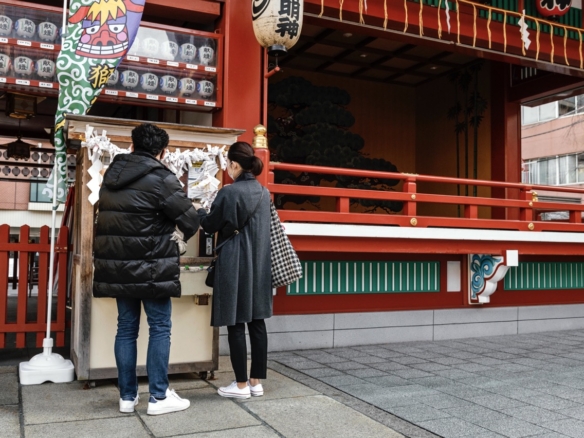Renting an apartment in Tokyo can feel overwhelming at first, especially if you’re new in Japan, but understanding the process will make everything much smoother. Below, we outline the key steps and requirements so you can secure your ideal home in West Tokyo or beyond.
The entire rental process typically takes about 2–3 weeks from application to move-in. This means the best time to begin your search is around one month before your preferred move-in date, ensuring you have enough time for viewings, paperwork, and preparation without stress.
1. Research and Apartment Hunting
Start by deciding what’s important to you: location, size, budget, and access to stations. In Tokyo, properties move quickly, so it’s wise to contact a bilingual agency like ours to narrow down suitable options and arrange viewings.
Keep in mind that not all properties in the market are foreigner-friendly—some landlords may not accept overseas applications, or they may have detailed conditions regarding tenant eligibility. Bilingual agencies like ours handle this research in advance, checking with each landlord or management company to ensure the apartments we recommend are compatible with your situation. This saves you valuable time and avoids the frustration of pursuing properties that aren’t available to you.
2. Viewing the Property
Viewings are usually scheduled with an agent. It’s best to visit in person to check sunlight, surroundings, and apartment or house condition. Photos online may not tell the full story. If you’re abroad, some agencies (like ours) can arrange video tours.
If you’re fairly certain the property will remain on your shortlist, it’s also a good idea to take measurements inside the rooms. This allows you to start planning early—whether it’s purchasing curtains, selecting furniture, or arranging movers—so the transition after signing is much smoother.
3. Application & Screening
Once you find the right apartment, the next step is to submit an application. Many landlords and agencies now accept online application forms, but in some cases, you may still need to complete a paper application with your signature or personal seal (hanko).
At this stage, the landlord, the guarantor company, and the management company will review your application. This tenant screening process evaluates factors such as financial stability, visa status, employment situation, and overall background. The goal is to ensure that you can reliably meet the rental obligations.
Required Documents for Screening
Typical documents requested include:
- Passport
- Residence Card (在留カード) or Certificate of Eligibility (COE)
- Proof of Income (e.g., recent payslips, employment contract, or tax return)
- Certificate of Employment (在職証明書) or company details if newly employed
- Emergency Contact (preferably a Japanese resident, sometimes required)
- Bank Book Copy (occasionally requested to confirm financial capacity)
For students, a certificate of enrollment is often required, and sometimes a guarantor will also be necessary.
Tip: Having digital copies of these documents prepared in advance can help speed up the process, especially if you’re applying from overseas.
4. Guarantor or Guarantor Company
In Japan, most landlords require a guarantor system to ensure rent payments are secure. Traditionally, this meant finding a co-signer or personal guarantor (such as a Japanese relative or employer) who would take legal responsibility if you failed to pay rent.
However, nowadays, many landlords mandate the use of a guarantor company instead. This is good news for international residents, since finding a personal guarantor can be very difficult if you don’t have close acquaintances in Japan. With a guarantor company, you don’t need to ask anyone to co-sign on your behalf.
That said, guarantor companies charge a fee, usually 30–100% of one month’s rent (paid at the start of your contract), plus a smaller annual/monthly fee. While this adds to your initial costs, it is generally the simplest and most reliable way to meet the landlord’s requirements and secure your apartment.
5. Contract Signing & Explanation of Important Matters
After your application is approved, the next step is lease contract signing. Before you sign, your agent is legally required to provide an official Explanation of Important Matters (重要事項説明) based on the document called the Disclosure Statement (重要事項説明書).
This disclosure statement ensures you understand the apartment’s conditions and contract terms before committing. The explanation is usually given by a licensed real estate agent and may take 30 minutes to an hour.
Examples of What’s Covered in the Disclosure Statement:
- Basic Property Information: location, size, layout, and registration details.
- Rights & Restrictions: whether the property is for residential use only, or if there are restrictions on renovations/pets.
- Contract Terms: rent amount, deposit, key money, renewal fees, and payment schedules.
- Building Rules & Management: garbage disposal, quiet hours, shared space usage, and maintenance responsibilities.
- Termination & Renewal Conditions: how to cancel the lease, notice periods, and renewal fees.
- Risk Information: any known defects, disaster risk zones (flood/earthquake), or planned construction nearby.
Important: The disclosure statement, lease contract, and any other official documents provided by the landlord or management company will be in Japanese only. However, rest assured! Our bilingual team is here to help you fully understand every detail. We provide all explanations in English, so you can sign with confidence.
Once you’ve received the explanation and confirmed you want to proceed, you’ll sign the lease. Depending on the landlord or agency, this may be done electronically or with a paper contract.
Upfront Costs to Prepare For
At the time of signing, expect to pay several initial fees:
- First Month’s Rent (often prorated) + Second Month’s Rent
- Deposit (敷金): usually 1–2 months’ rent
- Key Money (礼金): a non-refundable “thank you” payment to the landlord (not always required)
- Agency Fee: typically one month’s rent plus tax
- Guarantor Company Fee (if applicable)
- Fire Insurance: mandatory
Rental contracts are usually for two years, with a renewal fee of about one month’s rent at extension.
=> Altogether, it’s safe to assume the initial move-in cost will total around 4–5 months’ rent.
6. Handover & Move-In
On your scheduled move-in day, you will receive the keys to your new home from either your agent or the property management company. This may be done in person during a handover meeting or, in some cases, the keys may be sent to you by mail.
Inspection Sheet
Upon move-in, tenants are usually required to complete an inspection sheet. This form allows you to document any existing damage, scratches, or wear-and-tear in the apartment at the time you move in. Submitting this record is very important, as it ensures you won’t be held responsible for those pre-existing conditions when moving out.
Setting Up Utilities
Before move-in, make sure to arrange essential utilities such as:
- Electricity
- Gas (usually requires an in-person appointment for activation)
- Water
- Internet / Wi-Fi
These services need to be set up in advance to ensure everything is ready by your move-in day.
Good news: At WEST TOKYO HOUSING, we can help arrange all your utilities at no additional cost, as it’s included as part of our standard commission service. This way, you can settle in without the stress of making multiple applications on your own.
Final Thoughts
Renting in Tokyo involves more steps compared to many other countries, but with the right guidance, the process can be smooth and stress-free. Our bilingual team at WEST TOKYO HOUSING specializes in helping international residents find comfortable homes while making every step clear and easy to understand.
Whether you’re relocating for work, study, or a fresh start, we’re here to simplify the journey. Get in touch with us today, and let’s start the search for your new home in Tokyo!



Join The Discussion